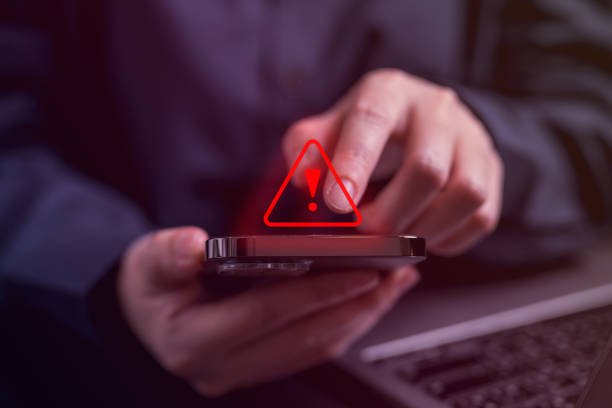Have you ever received a call from an unknown number and felt that familiar twinge of curiosity mixed with unease? If you’ve recently encountered the number 267-641-9402, you’re not alone. Many people across Pennsylvania have been puzzled by this mysterious caller. Is it a friend trying to reach out, or could it be something more sinister? With the rise of spam calls and scams, it’s crucial to stay informed about who might be on the other end of that line. Let’s dive into the enigma surrounding 267-641-9402 and uncover what you need to know!
The Mystery of the Phone Number 267-641-9402
The phone number 267-641-9402 has become a point of intrigue for many. Its origins remain unclear, sparking curiosity among those who receive unexpected calls from it.
People often wonder who might be behind this mysterious number. Is it a friend playing pranks, or perhaps an unknown business trying to reach potential customers?
Some reports hint at connections to telemarketers and survey companies. Others suspect something more nefarious lurking beneath the surface.
With so much uncertainty surrounding 267-641-9402, it’s easy to see why people are concerned. Each call stirs up questions that leave recipients on edge, wondering about the intentions of the caller.
Many individuals have taken to online forums seeking answers. Shared experiences and advice create a community striving to uncover the truth behind this elusive number.
Potential Reasons for Receiving a Call from this Number
Receiving a call from 267-641-9402 can spark curiosity and concern. There are various reasons behind such unknown calls.
One possibility is that it could be a legitimate business reaching out. They might have your information due to past interactions or market research initiatives.
Alternatively, the call may stem from telemarketers promoting products or services you didn’t request. This type of outreach is common in today’s marketing landscape.
Another reason could involve automated systems conducting surveys or seeking feedback on services you’ve used recently.
However, not all motives are benign. Scammers often use unfamiliar numbers to catch unsuspecting targets off guard, aiming for personal information or financial gain.
Understanding these potential reasons can help you decide how to react when this number appears on your screen. Always approach unknown callers with caution; it’s better to be safe than sorry.
Scams and Fraud Alerts Associated with this Number
Reports indicate that 267-641-9402 has been linked to various scams. Many victims describe receiving unsolicited calls claiming to be from reputable companies or government agencies.
Scammers often use high-pressure tactics, urging individuals to share personal information or make quick payments. These techniques can create a sense of urgency, making it easy for unsuspecting callers to fall victim.
In some cases, the number is reported as part of phishing schemes, where the goal is simply to steal sensitive data like social security numbers and bank details.
Additionally, there have been instances of robocalls originating from this number, promoting fake services or products that are too good to be true. Always exercise caution when dealing with unknown phone numbers like 267-641-9402; skepticism can save you from potential financial loss.
How to Protect Yourself from Unknown Callers
Protecting yourself from unknown callers is essential in today’s world. Start by screening calls with your caller ID. If you don’t recognize a number, let it go to voicemail.
Consider using call-blocking apps or features offered by your phone carrier. These tools can help filter out unwanted calls effectively.
If you answer and sense something off, trust your instincts. Hang up if the conversation feels suspicious or aggressive.
Never share personal information over the phone unless you’re certain of who you’re talking to. Scammers often use tactics that pressure individuals into revealing sensitive data.
Registering on the National Do Not Call Registry can also reduce unwanted solicitation calls, helping keep some telemarketers at bay.
Stay informed about common scams circulating in your area; knowledge is a powerful defense against fraudsters lurking behind unknown numbers.
Steps to Take if You Receive a Call from 267-641-9402
If you receive a call from 267-641-9402, the first step is to remain calm. Assess whether you recognize the number or if it seems suspicious.
Consider letting the call go to voicemail. Genuine callers often leave messages, while scammers may not bother.
If you answer and it’s an unknown voice, don’t share personal information. Simply hang up if anything feels off.
You can also search online for reports related to this number. Many websites track spam numbers and may provide insights into others’ experiences.
Blocking the number on your phone could be beneficial too. This prevents future calls from interrupting your day.
Report any suspicious activity to local authorities or consumer protection agencies. They can help investigate further and protect others in your area.
Conclusion: Staying Safe in the Age of Unknown Callers
The rise of unknown callers like the one from 267-641-9402 can be unsettling. It’s essential to stay vigilant in today’s digital age, where scams and fraud are prevalent. Being informed is your best defense against unwanted calls.
If you receive a call from this number or any other unfamiliar source, remember that you have options. Use caller ID features on your phone to screen calls, and don’t hesitate to block numbers that cause concern. Trust your instincts; if something feels off, it probably is.
Consider reporting suspicious calls to appropriate authorities or using apps designed to identify spam and scam numbers. Spreading awareness among friends and family can also foster a community approach to keeping each other safe.
Taking proactive measures ensures you’re not just reacting but staying ahead of potential threats posed by unknown callers. Protecting yourself starts with being aware—stay alert, question unexpected communications, and safeguard your personal information diligently.

